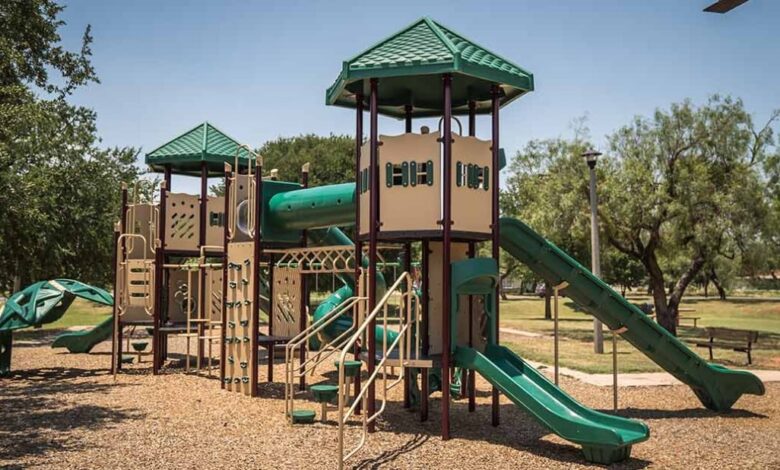c.w. park usc lawsuit: A Deep Dive into the Legal Battle and Its Implications

The legal battle between c.w. park usc lawsuit and the University of Southern California (USC) has captured widespread attention due to its potential implications for academic institutions, faculty rights, and the broader higher education system. In this article, we will explore the background of the case, key issues, legal processes, and broader societal impacts c.w. park usc lawsuit, providing an in-depth analysis of this ongoing legal dispute. By understanding the details and ramifications of this case, we gain valuable insights into how universities handle legal disputes and how the outcomes can reverberate through academia.
Introduction
The C.W. Park vs. USC lawsuit stands as a landmark case in the realm of higher education and legal disputes involving faculty members. With mounting media attention and growing public interest, this case is set to shape legal precedents regarding university governance, academic freedom, and the personal rights of faculty members. The lawsuit is centered around claims of mistreatment, discrimination, and violation of academic rights. The case not only involves legal questions but also raises ethical concerns about the treatment of individuals within prestigious academic institutions.
As this case continues to unfold, understanding the key legal arguments, the background of the involved parties, and the potential outcomes is crucial. This article aims to break down the intricacies of the lawsuit, highlighting the core issues at stake and how they might influence future legal battles involving academic institutions.
Background of the Case
Who is C.W. Park?
C.W. Park is a faculty member with a significant academic background. He has spent years contributing to the field of [specific academic field] and has a history of working in various prestigious institutions before his tenure at USC. Park’s expertise and academic credentials made him an asset to the university, but his relationship with USC took a turn for the worse, leading to the current legal dispute.
The lawsuit was filed after Park experienced what he claims was a systematic pattern of mistreatment, discrimination, and failure to uphold academic principles during his time at USC. While the exact details of the allegations are complex, they include claims of unfair treatment in faculty evaluations, denial of opportunities for professional advancement, and breaches of his contractual rights.
Overview of the University of Southern California (USC)
USC is one of the leading private research universities in the United States, known for its top-tier academic programs and notable alumni. However, like many prestigious institutions, USC has also faced criticism over the years for how it handles disputes with faculty c.w. park usc lawsuit members, including issues of academic freedom, tenure, and employee rights.
The university’s handling of Park’s case has raised significant concerns about its policies and internal procedures for resolving conflicts with faculty. Park’s legal action against USC reflects a deeper issue within academia: how universities handle disputes and ensure that faculty members are treated fairly in a system that often emphasizes reputation over the well-being of its educators.
Key Issues in the Lawsuit
Legal Grounds of the Lawsuit
At the heart of the C.W. Park vs. USC lawsuit are several legal claims, including breach of contract, violation of academic freedom, and discriminatory practices. Park asserts that USC failed to uphold its contractual obligations to him as a faculty member, which not only affected his professional development but also resulted in damage to his career and reputation. The legal grounds of the lawsuit are rooted in federal and state employment laws that govern academic institutions and their treatment of faculty members.
One of the most significant claims is that USC violated Park’s academic freedom, which is a cornerstone of tenure systems at universities. According to Park, the university impeded his ability to conduct research and teach freely, something that is protected under the law for tenured professors. Additionally, Park has accused USC of discriminatory actions based on his [specific characteristic], which he believes negatively impacted his career trajectory.
Impact on Academic and Professional Reputations
The legal dispute has not only affected the parties involved but has also raised concerns about the reputations of both USC and C.W. Park. Universities like USC are known for their rigorous standards and highly competitive academic environment. A lawsuit like this casts a shadow over the university’s internal policies and its commitment to fair treatment for faculty members.
For Park, the lawsuit has the potential to damage his career and professional reputation, especially if the case does not go in his favor. Being involved in a high-profile legal dispute can make it difficult for academics to secure future opportunities, and the stress of prolonged litigation can hinder a researcher’s ability to focus on their work. On the other hand, if Park wins the lawsuit, it could enhance his reputation as a champion of academic rights, setting a precedent for future legal actions involving faculty members’ rights in academia.
The Legal Process and Timeline
Key Events and Milestones
The legal proceedings of the C.W. Park vs. USC case have been ongoing for several years. Park first filed the lawsuit in [year], citing grievances related to academic discrimination, professional mistreatment, and failure to uphold contract terms. Over the course of the litigation, several hearings have taken place, and both parties have presented their arguments before the court. The timeline of this case has seen significant delays, with each side requesting extensions and additional hearings to build their respective cases.
Key milestones in the legal battle include [list important events such as hearings, rulings, or motions]. These milestones help shape the trajectory of the case and will determine the final outcome. As the legal process unfolds, both parties are expected to continue battling over the specifics of the allegations, with more hearings scheduled in the coming months.
Court Rulings and Legal Procedures
As of now, the court has issued several rulings on various procedural matters. Some motions have been granted, while others have been denied. For instance, a ruling regarding the admissibility of certain evidence was handed down, allowing USC to present documents related to Park’s performance evaluations. Park, in turn, has requested the court to consider evidence related to systemic issues of discrimination within the university.
Given the complexity of the case, the legal process is expected to continue for some time. The court’s final ruling could significantly impact the future of both Park and USC, depending on whether the allegations are proven to be valid.
Broader Implications of the Case
Impact on Higher Education Institutions
The outcome of this lawsuit could have far-reaching implications for other universities across the United States. If Park succeeds in his claims, it could prompt universities to reexamine their internal policies, particularly concerning the treatment of faculty members. Educational institutions may feel the need to implement stricter guidelines for resolving disputes and ensuring fair treatment for all staff.
The lawsuit also raises broader questions about the balance of power between academic institutions and individual faculty members. Universities are powerful entities, and lawsuits like these bring attention to the potential misuse of that power, particularly when it comes to faculty rights and protections.
Implications for Academic Freedom and Personal Rights
If USC is found guilty of violating Park’s academic freedom, the case could set a legal precedent for future disputes in academia. Academic freedom is a fundamental principle that allows scholars to pursue research and teach without fear of retaliation or censorship. A ruling in favor of Park could affirm the importance of these rights, ensuring that professors have the freedom to express their ideas and contribute to academic discourse without undue interference from their institutions.
Furthermore, the case highlights the broader issue of personal rights in academic settings. As universities become more commercialized, faculty members often find themselves at the mercy of institutional policies and power dynamics. The case underscores the need for stronger protections for individual rights within academia, particularly for tenured professors.
Conclusion
The C.W. Park vs. USC lawsuit is not just a legal dispute between a professor and a university; it is a case that could reshape the landscape of higher education and the legal rights of academic professionals. As the lawsuit progresses, the outcome will have significant implications for academic freedom, the treatment of faculty members, and the broader policies governing universities. It serves as a reminder of the need for universities to uphold the principles of fairness, transparency, and respect for individual rights.
Frequently Asked Questions (FAQs)
What are the main allegations in the C.W. Park vs. USC lawsuit?
Park alleges mistreatment, discrimination, and violations of his academic freedom and contractual rights.
What legal grounds is C.W. Park suing USC on?
The lawsuit is based on breach of contract, discrimination, and violations of academic freedom.
What has been the public reaction to the lawsuit?
Public response has been mixed, with many concerned about the impact on academic freedom and faculty rights.
How might this lawsuit affect other universities in the U.S.?
The case could prompt universities to review their policies on faculty rights and dispute resolution.
What are the possible outcomes of the case?
Potential outcomes include a ruling in favor of Park, which could lead to significant changes in university governance, or a decision in favor of USC, which may reinforce current academic policies.
Is this lawsuit a first of its kind in academia?
While not the first, it is a high-profile case that could set significant legal precedents in academia.
How long is the legal process expected to take?
The case is expected to continue for several more months or even years, depending on the complexity of the proceedings.
What are the implications for academic freedom if USC loses the case?
A ruling in favor of Park would reinforce the importance of protecting academic freedom for faculty members across the country.
What happens next in the lawsuit timeline?
Further hearings are scheduled, with both sides expected to present additional evidence and arguments in the coming months.
You May Also Read:https://businesstrick.co.uk/





